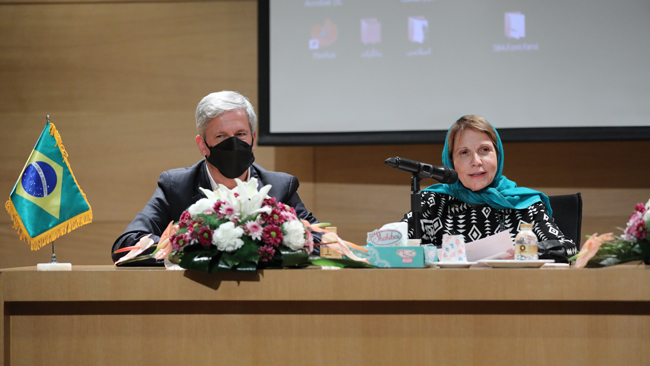Minister of Agriculture, Livestock and Supply of Brazil Tereza Cristina Corrêa da Costa Dias emphasized that she pursues trade balance with Iran in her trip to the Islamic Republic.
Speaking during a meeting on Thursday with Iranian private sector activists at Shiraz Chamber of Commerce, the minister noted that the Latin American country wants to maintain exports to Iran and expand imports from the Islamic Republic in order to reach a trade balance in agricultural exchanges, IRNA reported.
As to the goal of her visit to Iran, she said that Brazil is keen to enhance agricultural cooperation, because all countries should help supply qualitative and affordable foodstuff worldwide.
Given technological capacity and suitable lands for cultivation in Brazil, the country is ready to attract Iranian investors; so, the face-to-face negotiations can help reach consensus in this regard, she argued.
Referring to the fact that agriculture and animal husbandry are modern and developed in the Latin American country, the minister said that Brazil can assist other countries in terms of food security because of its advancement in this field.
She also mentioned statistics of the Food and Agriculture Organization of the United Nations, saying that demands for foodstuff will rise up to 60 percent; thus, food producing countries should develop and implement new methods of cultivation and harvest.

The minister pointed to the fact that trade between Iran and Brazil is being conducted via intermediary countries, adding that the bilateral businesses focus on products such corn, soybean and so on.
Brazil is importing urea chemical fertilizer from Iran, she said, expressing hope that the item will expand to fertilizer for products such as pistachio, almond and saffron.
Speaking during a seminar in Tehran late in January on exploring the chances for trade between Iran and Brazil, Iran Chamber chief Gholam Hossein Shafei said that Iran had some $1.15 billion of direct imports from Brazil in 2020 while its exports to the Latin American country stood as few as $116 million.
Shafei noted that corn, soybean, edible oils, sugar, meat and coffee were Iran’s main import items from Brazil while mining and industrial sectors were paid less attention.